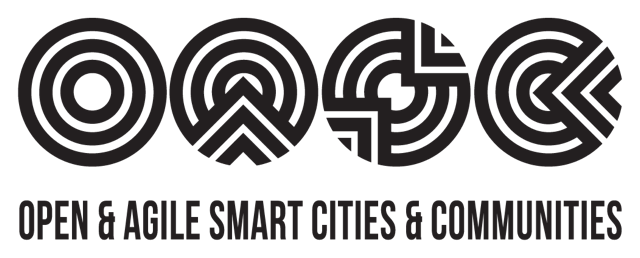Writer Mark Boyd of Programmable Web highlights essential elements of the new OASC initiative. Featured are a few excerpts from the article
Building an Open Standard Data Model in Partnership with Developers
“The hope is that if all cities are using the same NGSI data model, they can then open up data they may be collecting from sensors and other civic technologies and make it available in a uniform way for third-party application developers. This creates a scalable model so that entrepreneurs and startups can create a civic tech application that can work across any city signing up to use the NGSI standard.”
“Under the OASC initiative’s implementation-driven approach, the idea is that the API data model will be co-designed with application developers who are building the next wave of civic technology solutions.”
“The next stage of the work of the OASC will be to identify civic tech solutions being built by startups and small and medium enterprises. These solutions will identify what entity and attribute definitions will need to be added to the NGSI data model.”
Civic Tech to Reduce Inequity and Spur Innovation
“Brynskov and Hierro both believe that this new agreement will enable cities to address social inequities faced by marginalized citizens and poorer communities, as well as enable the next wave of innovation and economic development. Brynskov explains:
“This is important if you do not have a lot of resources as an individual, community or city. Any city on any level can set this up as they need to. They can take a ton of what other cities have done and tweak it for their local situation. It will not be high cost. You will need to tweak the application solutions to your city level, but that is scalable.”
“This technology will also help close equity gaps quite cheaply. There are small minorities in all cities who have a particular perspective or need. With these standards you can leverage resources across the globe and really cater to individual needs. It really is a beautiful characteristic of this. If you look at how the global population is evolving, growth will mostly happen in Africa, South America and Asia and will be unstructured, so we really need to have mechanisms that can scale and fit diverse environments. Looking ahead, this is a crucial component.”
Hierro sees the initiative as “a significant step forward” for stimulating economic opportunity by creating a new wave of entrepreneurial activity:
“The whole notion of a standard that developers can rely on for context of a city will really enable a lot of applications that developers can market. It is a real boost for innovation. This is not just about more efficient services, but about transforming the city into a platform for the development of applications. This notion of offering data and enriching context information will be a central enabler.”
Read Mark Boyds entire article here.
